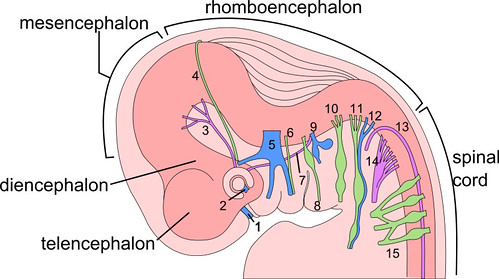New research from the University of Adelaide has confirmed that a gene linked to intellectual disability is critical to the earliest stages of the development of human brains.
Known as USP9X, the gene has been investigated by Adelaide researchers for more than a decade, but in recent years scientists have begun to understand its particular importance to brain development.
In a new paper published online in the American Journal of Human Genetics, an international research team led by the University of Adelaide’s Robinson Research Institute explains how mutations in USP9X are associated with intellectual disability. These mutations, which can be inherited from one generation to the next, have been shown to cause disruptions to normal brain cell functioning.
Speaking during Brain Awareness Week, senior co-author Dr Lachlan Jolly from the University of Adelaide’s Neurogenetics Research Program says the USP9X gene has shed new light on the mysteries of brain development and disability.

Dr Jolly says the base framework for the brain’s complex network of cells begins to form at the embryo stage.
“Not surprisingly, disorders that cause changes to this network of cells, such as intellectual disabilities, epilepsy and autism, are hard to understand, and treat,” Dr Jolly says.
“By looking at patients with severe learning and memory problems, we discovered a gene – called USP9X – that is involved in creating this base network of nerve cells. USP9X controls both the initial generation of the nerve cells from stem cells, and also their ability to connect with one another and form the proper networks,” he says.
“This work is critical to understanding how the brain develops, and how it is altered in individuals with brain disorders.
“We hope that by learning more about genes such as USP9X, we will create new opportunities to understand brain disorders at a much deeper level than currently known, which could lead to future treatment opportunities.”
This research was funded by the National Health and Medical Research Council (NHMRC) and the Women’s and Children’s Hospital Foundation.
Contact: Dr. Lachlan Jolly – University of Adelaide
Source: University of Adelaide press release
Image Source: The image is credited to Kurzon and is in the public domain.
Original Research: Abstract for “Mutations in USP9X Are Associated with X-Linked Intellectual Disability and Disrupt Neuronal Cell Migration and Growth” by Claire C. Homan, Raman Kumar, Lam Son Nguyen, Eric Haan, F. Lucy Raymond, Fatima Abidi, Martine Raynaud, Charles E. Schwartz, Stephen A. Wood, Jozef Gecz and Lachlan A. Jolly in American Journal of Human Genetics. Published online March 6 2014 doi:10.1016/j.ajhg.2014.02.004






